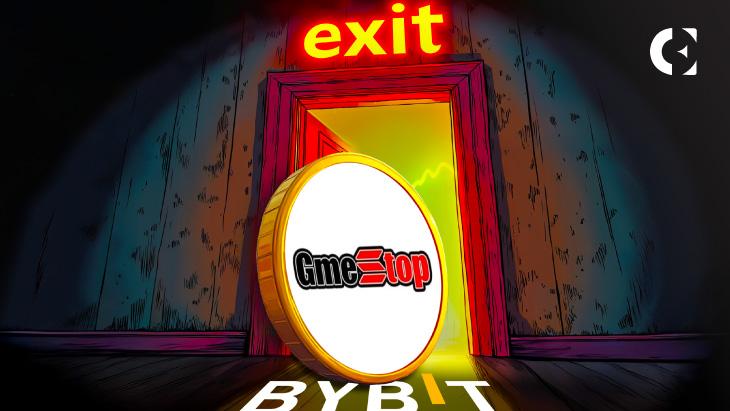線上客服
客服團隊
剛剛
親愛的 LBank 用戶
我們的線上客服系統目前遇到連線故障。我們正積極修復這一問題,但暫時無法提供確切的恢復時間。對於由此給您帶來的不便,我們深表歉意。
如需幫助,您可以透過電子郵件聯繫我們,我們將盡快回覆。
感謝您的理解與耐心。
LBank 客服團隊

Bybit officially the GME/USDT perpetual contract on March 25, 2025, at 9:00 AM UTC. The exchange confirmed that all trading, open orders, and bot activity tied to the contract were disabled. Positions were auto-closed using the 30-minute average index price before delisting.
Bybit’s move impacted users involved in trading GME derivatives. Traders saw their positions forcibly closed, with no option to manage exposure or adjust stop-loss levels ahead of time.
Despite the delisting, the GME token saw a surprising 15% jump within hours. Before delisting, GME traded near $0.0026. It then surged to a peak above $0.0033, according to CoinMarketCap data, before settling at $0.0030.
This sudden spike followed an extended dip earlier that day. The pattern showed a sharp sell-off during low-volume Asian trading hours, followed by a rapid rebound after Bybit’s removal went live.
Bybit stated that its decision was part of a routine review. The GME contract was one of several low-liquidity assets flagged by the exchange. The official announcement explained that failure to meet Bybit’s listing requirements triggers reviews and potential removal.
According to Bybit’s March 19 statement,
“All listed tokens are subject to regular review. If a token fails our listing standards, it may be delisted.”
This policy also affected spot tokens like GG/USDT and IRL/USDT, which saw price drops of over 25% and 40%, respectively. GME’s removal from the perpetual contract section follows this broader cleanup strategy.
Delisting from a major platform often reduces token liquidity. It limits access, raises slippage risk, and affects market-making. For GME, the short-term price pump does not change its uncertain outlook. Lack of support from major platforms usually makes the token harder to trade and less attractive for institutional or large-scale retail positions.
The sudden pump after delisting may reflect short covering or speculative buying from smaller platforms, but liquidity risks remain.
Bybit’s highlights a broader effort to tighten platform standards and improve asset quality. The removed pairs include CUSD/USDT, PLANET/USDT, BUBBLE/USDT, TAVA/USDT, GG/USDT, IRL/USDT, and EVERY/USDT. These tokens, mostly low-cap assets, were flagged for failing to meet the exchange’s listing criteria.
The delisting took effect on March 21, 2025, at 8:00 AM UTC, impacting both spot trading and the Bybit Convert feature. Users could no longer deposit the tokens after March 20, and the platform set a final withdrawal deadline for June 20, 2025, at 8:00 AM UTC.
Bybit’s official statement emphasized its commitment to maintaining a secure trading environment. The team conducts periodic reviews to assess token performance, volume, and compliance. If a token does not meet its internal standards, it faces removal. The exchange stated that this process protects users and preserves trading quality.
The exchange is prioritizing assets with strong fundamentals, volume, and compliance with internal review metrics. GME, with its low cap and limited trading support, failed to meet these benchmarks.
剛剛
親愛的 LBank 用戶
我們的線上客服系統目前遇到連線故障。我們正積極修復這一問題,但暫時無法提供確切的恢復時間。對於由此給您帶來的不便,我們深表歉意。
如需幫助,您可以透過電子郵件聯繫我們,我們將盡快回覆。
感謝您的理解與耐心。
LBank 客服團隊